
Assertiveness A Simple Way To Develop Yourself ThePleasantMind
49% of Turbulent Architects are often afraid of making decisions, compared to 18% of Assertive Architects. Both types of Architects lean toward being ambitious. But there's a potential trap in thinking that Assertive Architects are less ambitious than their Turbulent counterparts because they come across as less intense.
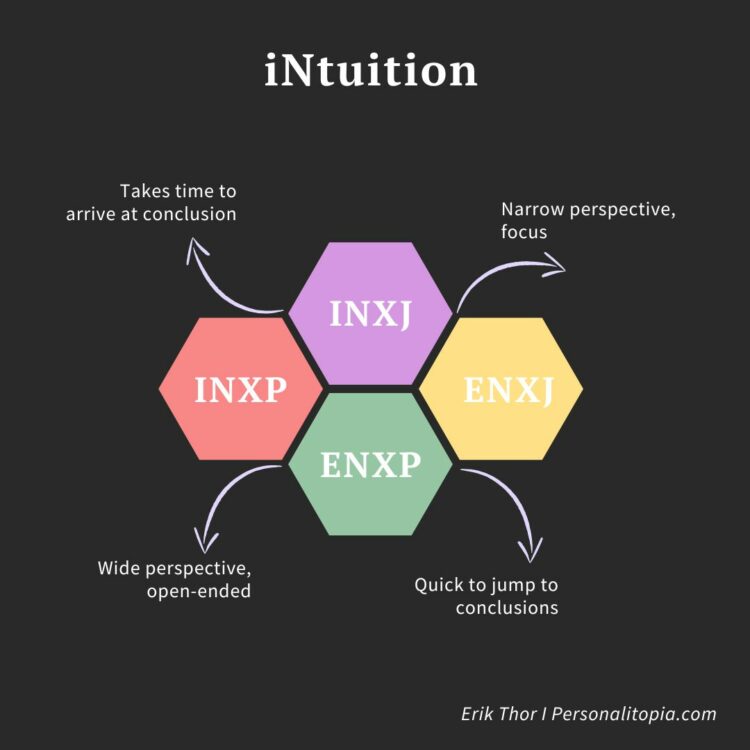
Assertive VS Turbulent iNtuition Explained Personalitopia Erik Thor
Source: 16Personalities - Assertive vs. Turbulent Personality Types. I want to argue against the idea of 16 personalities A vs T personality types. Many people assume that being Turbulent is a distinct personality type, but in fact, it is not. "Turbulent" is actually a mindset that is connected to the trait of neuroticism in the Big Five.

Turbulent INTJ (intjt) vs Assertive INTJ (intja) (With images) Intj t, Intj, Intj intp
Turbulent Virtuosos are more likely to feel overwhelmed by life or when things go wrong. Assertive Virtuosos are much more likely to feel they have control over their emotions, and their anger typically fades faster. Turbulent Virtuosos are somewhat less likely to feel comfortable with most aspects of themselves.

Assertive Personality Test
Assertive VS Turbulent iNtuition Explained. More and more people talk about iNtuition as having multiple subtypes. In fact, every function can be divided into two subtypes. So are you an Assertive iNtuitive (N+) or a Turbulent iNtuitive (N-)? It may vary depending on your current level of confidence.
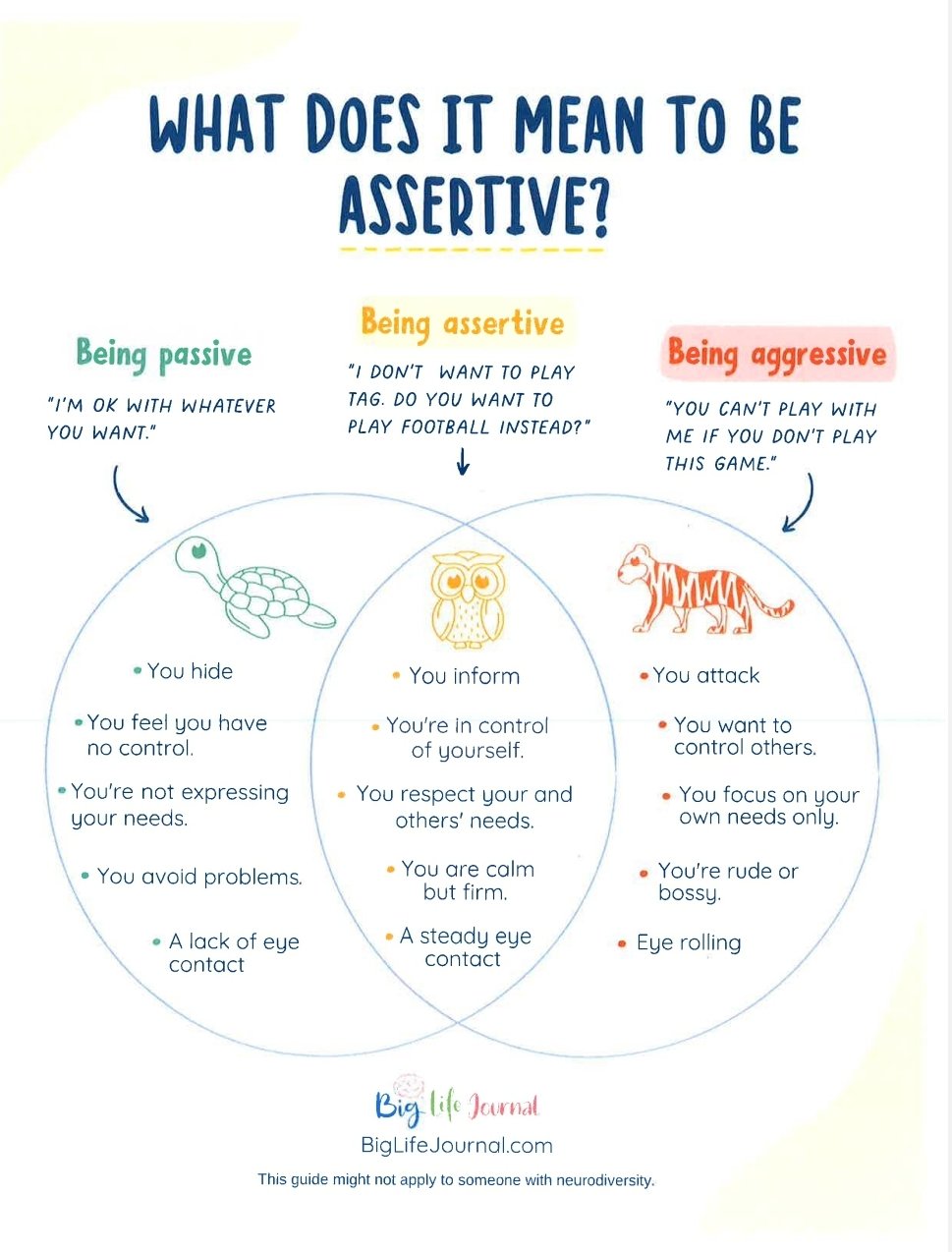
Counselor Mrs. Ingalls on Twitter "There are 4 main types of communication, Aggressive, Passive
Survey. Assertive Logicians are more likely to be satisfied with their current place in life when compared to Turbulent Logicians. But this is a standard difference between all Assertive and Turbulent personalities. Types are likely to overlap some when expressing identities. In typical fashion, Assertive Logicians report being more comfortable.

16 Personalities Assertive vs Turbulent? YouTube
While Assertive (INFJ-A) and Turbulent (INFJ-T) Advocates are likely to be more alike than different, their Identity personality trait provides some nuanced dissimilarities between the two. It impacts the way each thinks, acts, and responds to their worlds to a significant extent. Assertive Advocates are more likely to be confident and relaxed.

Fuwa MyersBriggs Analysis Members' Lounge Fuwanovel Forums
People with turbulent personalities are often insecure and try to counterbalance this feeling by pursuing success and achievements. Signs of a turbulent personality include a constant need to improve, perfectionism, overlooking self-care in favor of work, or imposter syndrome. Assertive personalities are the opposite of turbulent ones.

There are two variations to the INFJ personality type assertive and turbulent . Assertive INFJs
Assertive vs. turbulent personality. On the extended versions of the Myers-Briggs Personality Type Indicator, there's an indicator for two personality types: assertive and turbulent.
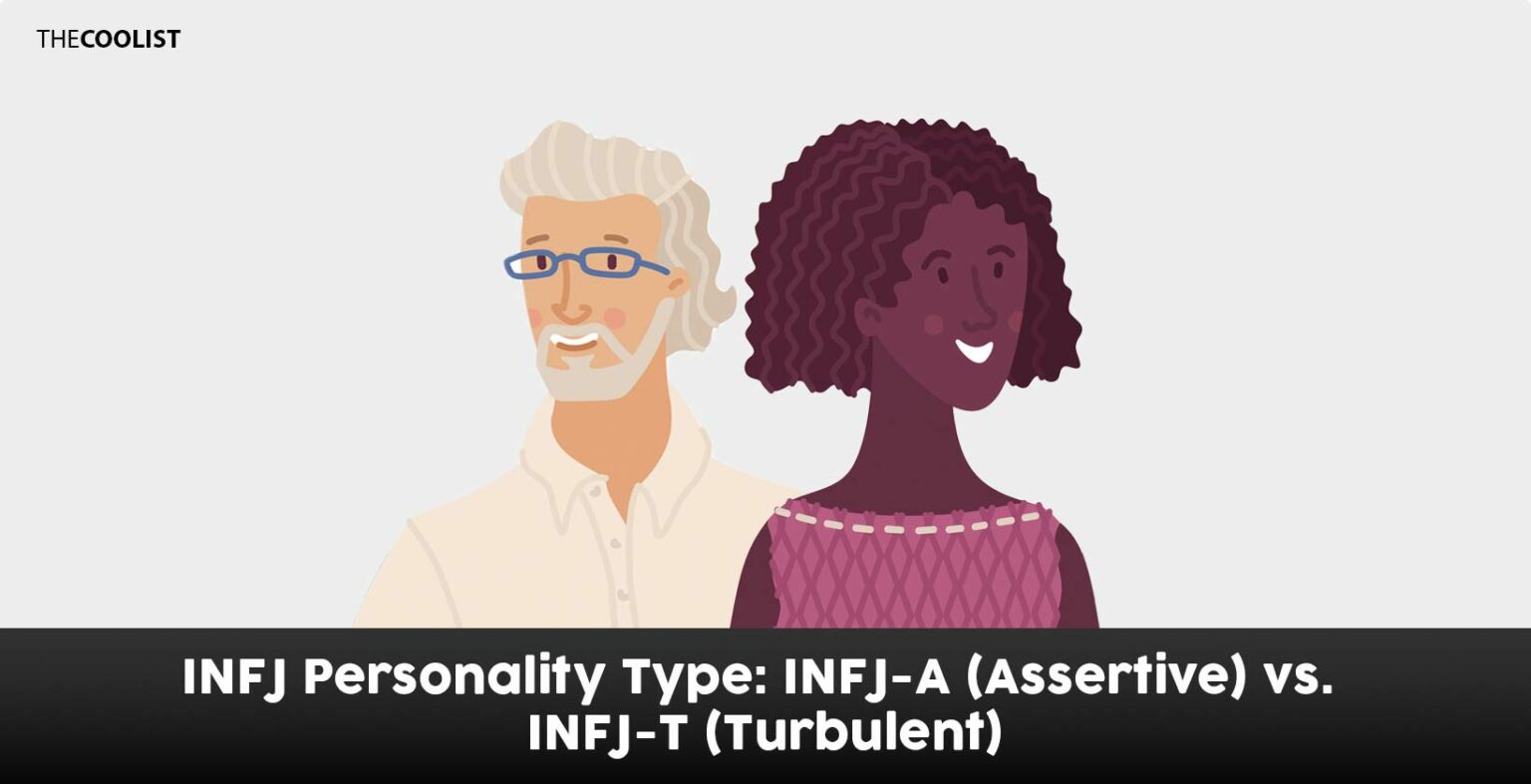
INFJ Personality Type INFJA (Assertive) vs INFJT (Turbulent)
This distinction between a "turbulent vs assertive" personality type is actually NOT based on the original framework of MBTI. This actually was made up of the 16personalities.com online test that combined the testing guidelines of the Big 5 personality framework along with the Myers-Briggs Type Indicator framework.

10 Ways TURBULENT INFJ Types ASSERTIVE YouTube
93% of those with the Assertive Identity say they feel confident facing day-to-day difficulties, compared to 62% of those with the Turbulent Identity. Assertive individuals are self-assured, even-tempered, and resistant to stress. They don't worry too much, but this is different from apathy.
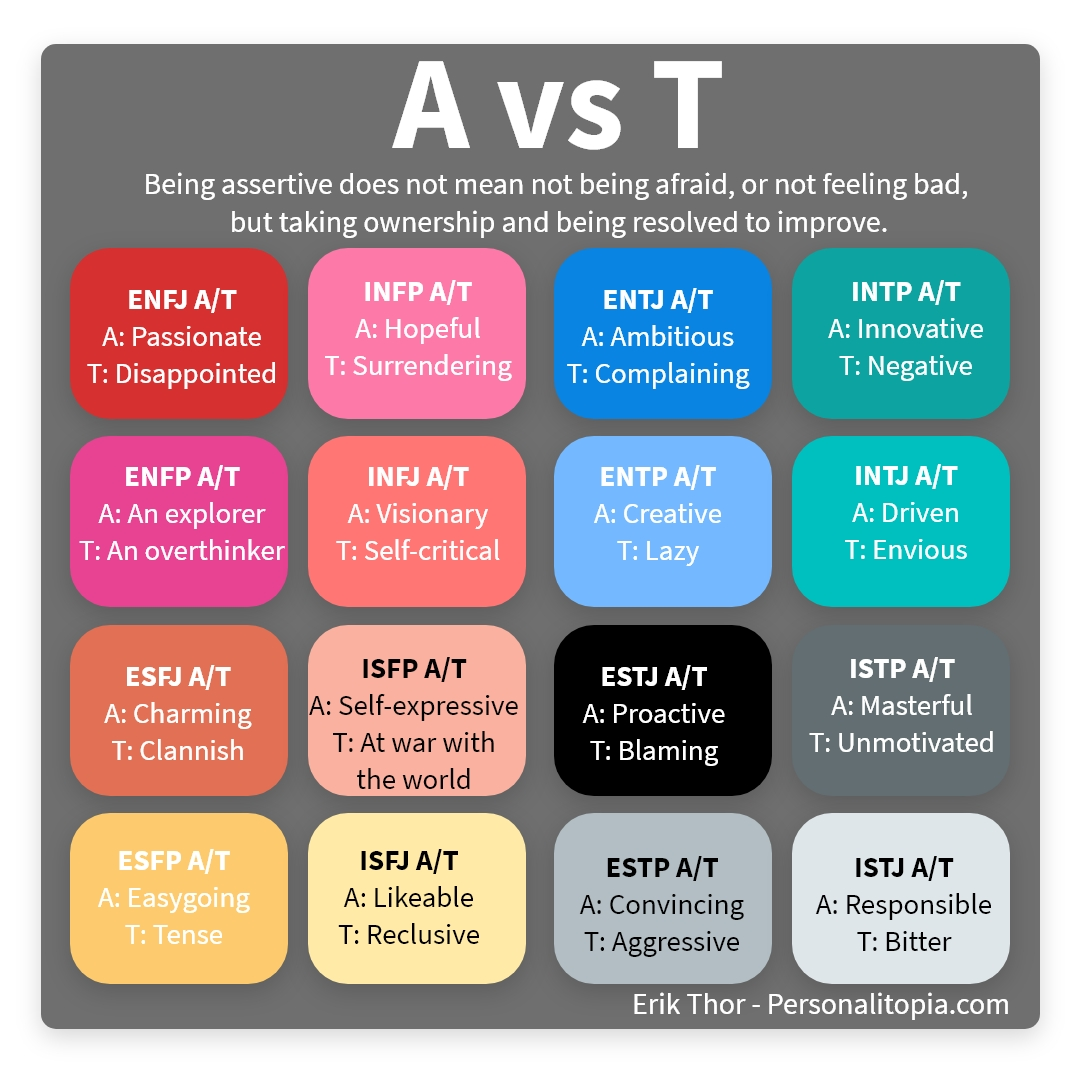
The 16 Personalities A VS T Explained Personalitopia
86% of Assertive Consuls feel they effectively manage the stress in their lives, compared to 60% of Turbulent Consuls. Assertive Consuls describe their approach to life with a sort of energetic ease that taps into their confident focus. This approach colors how these personalities deal with stressors that develop.
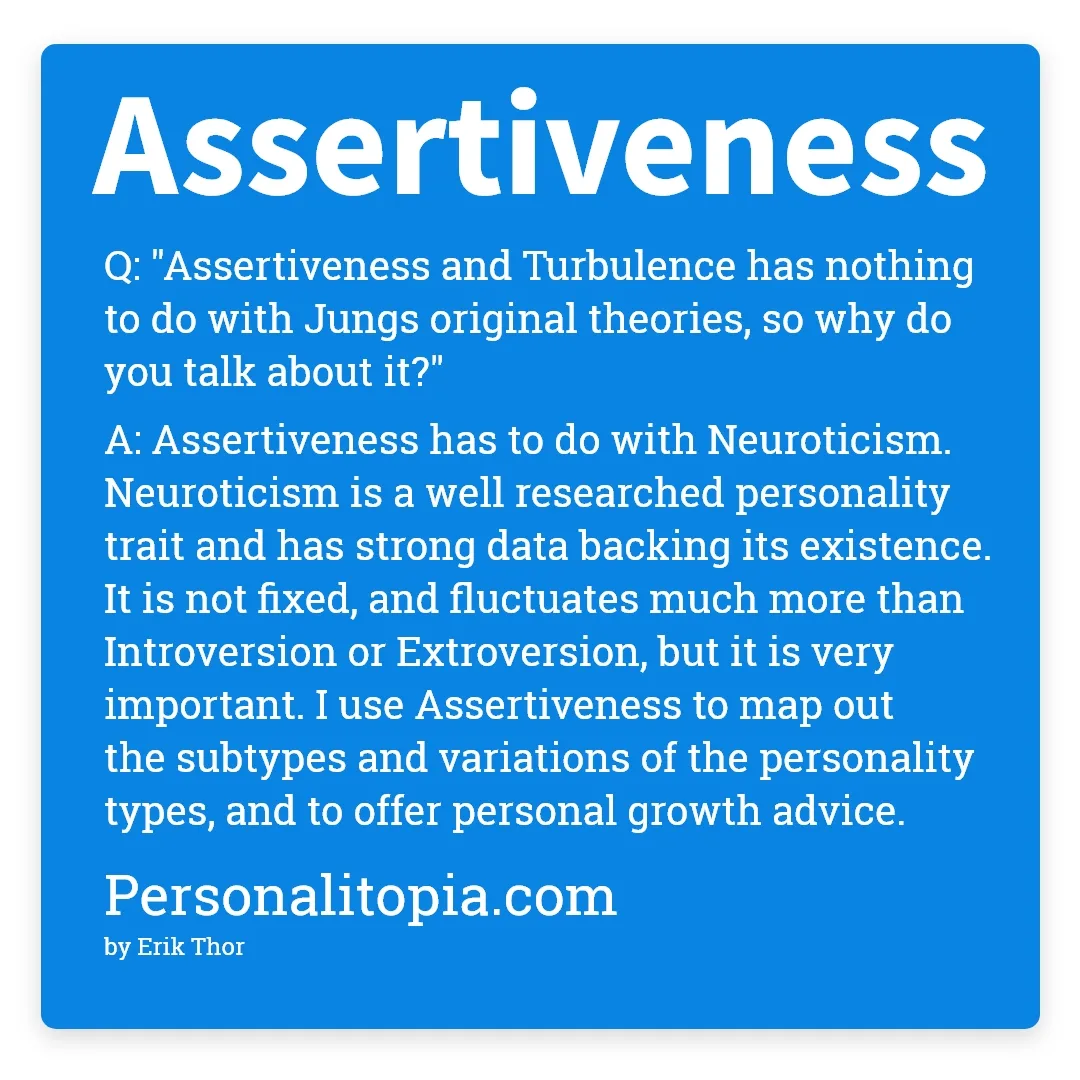
The Truth On Assertive and Turbulent People Personalitopia Erik Thor
Turbulent (T) - Assertive (A) & Big Five Neuroticism. Elsewhere I've observed that the turbulent - assertive dichotomy is not without its conceptual difficulties. Although I believe I understand what 16 Personalities had in mind in using these terms, the fact remains that "turbulent" is not the conceptual opposite of "assertive.
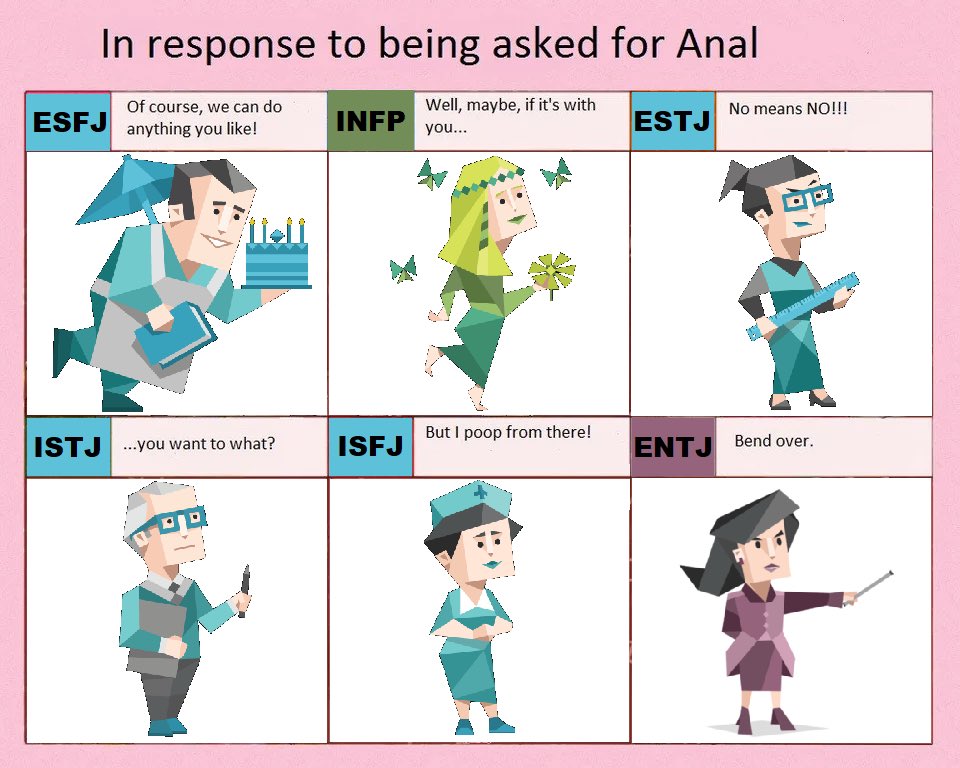
Mbti infp Assertive Mediator (INFPA) vs. Turbulent Mediator (INFPT) — inakhan.ru — Блог Инны Кхан
Assertive vs Turbulent communications are often discussed a great length.These styles greatly impact the dynamics of interpersonal relationships. These styles shape the way humans convey their thoughts, emotions, and ideas to others. They serve as the foundation for building relationships, resolving conflicts, and fostering understanding.
Differences between turbulent and assertive INFP’s r/infp
Assertive and Turbulent are already in the 16-type system What does the Assertive vs. Turbulent dichotomy add to the 16-type system? Well, to have real value, it would have to capture an element of personality that is not covered in the conventional type descriptions.
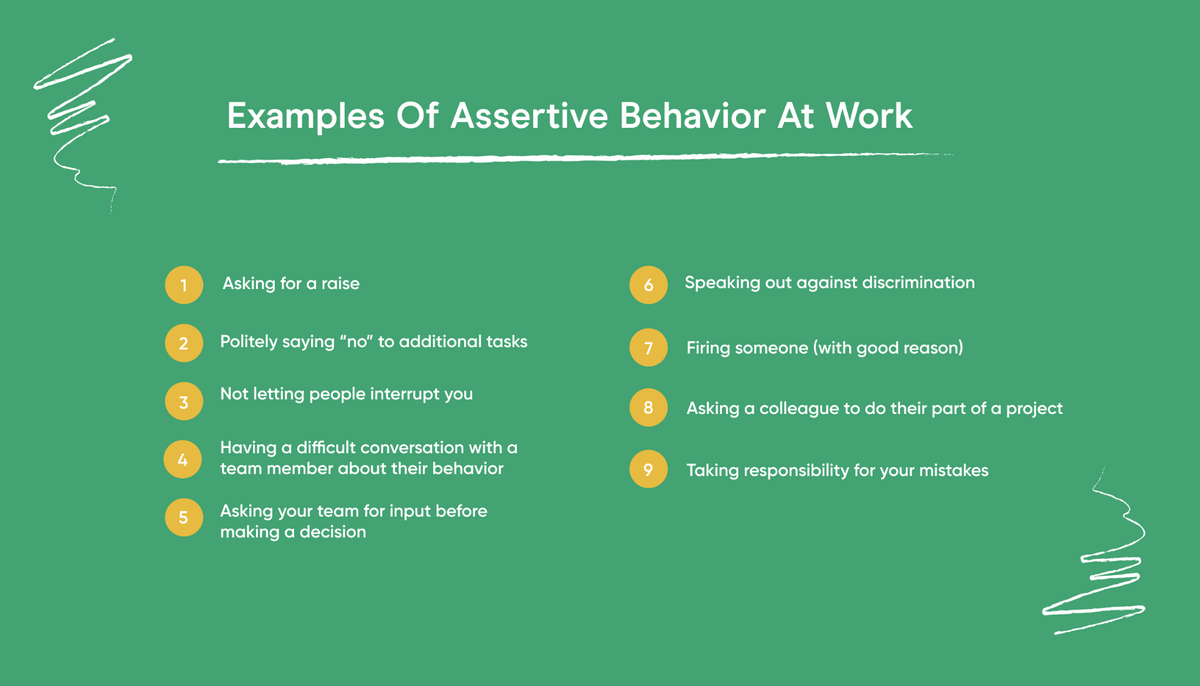
How to Be Assertive Without Getting in Your Own Way Pareto Labs
assertive vs. turbulent: What's the difference? Assertive and turbulent refer to opposing personality traits sometimes added to the Myers-Briggs Type Indicator (MBTI), a personality inventory. An assertive person is more calm, confident, and laid-back, while a turbulent person is more anxious, self-conscious, and perfectionist. The labels, when used, are appended to the standard four-letter.

What are the personality traits of the 16 personalities? Every MBTI personality type is
82% of Assertive Campaigners feel like they effectively manage the stress in their lives, compared to 32% of Turbulent Campaigners. "HANDLING STRESS" SURVEY. Assertive Campaigners are less affected by stressors in their lives because they tend to feel more confident in their ability to handle them. To them, stress is a part of life that.